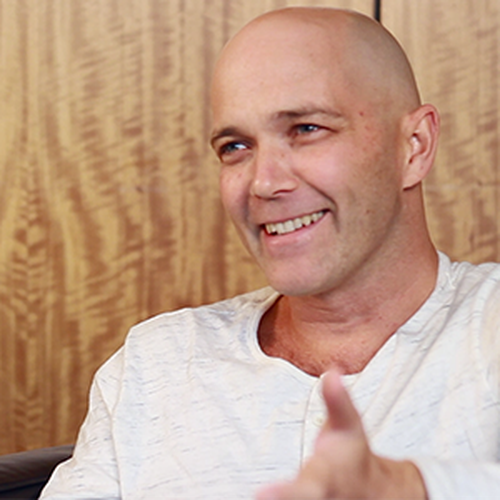Playwright’s Perspective: Hir

I’m a lover and maker of the alternative, underground, and radical movements, and basically every work I’ve made is somehow rooted in a subculture. Hir, however, is a new kind of play for me as it’s dealing with the mainstream; rather, the remnants of the former body politic and the rise of a new progressive body politic.
I grew up in Stockton, California at a time when it held the honor of having the highest murder rate (per capita) in America, the third highest illiteracy rate, and rows and rows of cheap urban blight tract houses were being built atop former farmland. Despite its century-old history of being one of the worst places in America to live, people kept moving in. That’s not to say they wanted to be there. If the daily disparagement I’d hear about Stockton from almost every inhabitant I knew is an accurate indication, nobody wanted to live there. People who professed they liked it would sometimes say, with zero irony, that moving to Stockton was a great idea because if you drove for three hours, in any direction, you’d end up in a place you’d like to be. The problem of economic hardship, or institutionalized prejudices, or complacency, or fear of the unknown, or a lack of education about (or access to) alternatives, or, or, or… whatever the reasons, meant nobody ever — or rarely — drove those three hours.
Stockton, to my family and many others, was a “for now” place; it was where poor or lower-middle-class families could afford their first houses. We called them starter homes and braved the bad statistics in hopes we could join the upwardly mobile and eventually move on to bigger and better things. Unfortunately, as the matriarch Paige describes in Hir, these homes often became “a starter home we’ve been in for thirty years.” Essentially my hometown was one of those places where the American dream got stuck in an American reality.
My story is not unusual. Most of the working-class queers I know have similar ones.
I started plotting my escape the second I developed a feminine walk and became conscious that I wasn’t like the other boys. My story is not unusual. Most of the working-class queers I know have similar ones. We’re always comparing tales about our oppressive upbringings and priding ourselves with our blue ribbons for worst hometown statistics. We continually talk about how lucky we are that our queerness and our need to survive and find community gave us the extra bit of drive that was needed to get out of those homophobic and transphobic environments. We queers, for the most part, fled to the bigger cities, or radical enclaves, where we try not to look back, lest we turn into a pillar of fast food condiments.
In my time since I left home (25 years), it’s been thrilling to notice how many of those queer refugees, along with the straight radicals (and even progressives), are exploding the oppressive traditions, dictates, laws, and culture we’ve inherited and are creating a new world order in our new homes. Sure it’s taking time, it should have happened long ago, and isn’t even close to actually being what it needs to be (in terms of dealing with inequality, climate change, and economic disparity), but it’s happening. There is tangible progress. There are also tangible casualties that are a direct result of this new world order we’re helping to create.
I keep reading articles and seeing news reports about how a whole generation of straight white conservatives is being sacrificed to the Fox News gods, how the boys are being left behind in schools, and as I travel around the country performing, I see how many returning soldiers aren’t able to integrate back into society. I equate Stockton, and all the Stocktons, with Arnold and Isaac in the play: the former is an abuser patriarch turned stroke victim and the latter, a prodigal son who is now an extremely damaged war veteran. They’re two people who tried to run their environments using the traditions they’d been given, failed violently, and can’t be allowed to be in charge any longer. But two people who are in the world regardless. Paige, the matriarch of the family, and Max, the youngest sibling (who is transgender and has begun to use the third-sex pronoun “hir” in place of her or him), believe they’re on the verge of freeing themselves. They’ve fought back and are reaping the benefits. It’s glorious. The problem they come up against in the play is: what to do with the collateral damage?
Taylor Mac
Playwright

